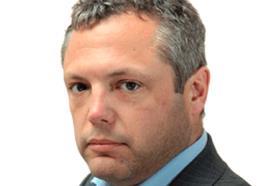‘You are all climate lawyers now,’ John Kerry, the US special presidential envoy for climate, declared last year.

Former Ireland president Mary Robinson, currently adjunct professor for climate justice at Trinity College Dublin, appears to demur. She seems to believe this is wishful thinking – or an aspiration at best. Lawyers are not leading the way on climate yet, Robinson told a Cop26 conference. Too many of you ‘still don’t have the mindset’ that we are in a crisis.
‘It’s particularly important that lawyers do have that mindset, because you can be very effective in so many different ways. Not just in [climate] litigation but in policymaking and advising,’ she declared. Lawyers need to get ‘angry’ with all of those who should be doing more – businesses, governments, city mayors.
As chair of the Elders, and therefore the éminence grise of progressive global leaders, Robinson is a reliable barometer of international liberal opinion. So is she right?
Viewed institutionally and internally, the criticism looks harsh. Bar associations and big law firms in particular are awash with emissions reduction initiatives and statements of best practice.
But as the grit in the oyster, I can’t help but point to the elephant in the room (please forgive the zoologically mixed metaphor). Does the lawyer’s professional responsibility to the planet – if one accepts in the first place that s/he has such a responsibility – extend to refusing instructions from the Earth’s despoilers?
I posed that question to the Law Society, which last month published its own climate change resolution. Could the resolution at least be interpreted as inviting solicitors not (for example) to represent a company building a coal-fired power station, or oil pipeline?
‘It is essential to a functioning legal system that everyone is able to access a lawyer to understand their rights and obligations within the law,’ Chancery Lane told me. ‘Over the next year, we aim to provide the profession with guidance on how to take climate change into consideration when advising clients and providing legal services.’
I will be most interested to see what this guidance says.































4 Readers' comments